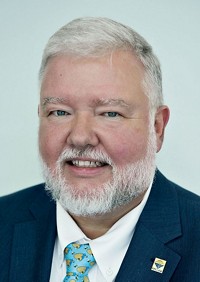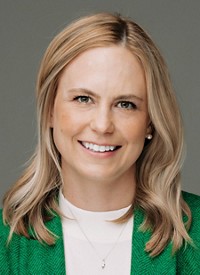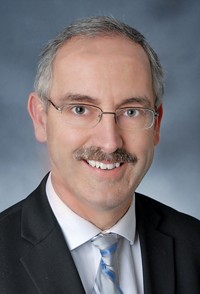Advertisement
Grab your lab coat. Let's get started
Welcome!
Welcome!
Create an account below to get 6 C&EN articles per month, receive newsletters and more - all free.
It seems this is your first time logging in online. Please enter the following information to continue.
As an ACS member you automatically get access to this site. All we need is few more details to create your reading experience.
Not you? Sign in with a different account.
Not you? Sign in with a different account.
ERROR 1
ERROR 1
ERROR 2
ERROR 2
ERROR 2
ERROR 2
ERROR 2
Password and Confirm password must match.
If you have an ACS member number, please enter it here so we can link this account to your membership. (optional)
ERROR 2
ACS values your privacy. By submitting your information, you are gaining access to C&EN and subscribing to our weekly newsletter. We use the information you provide to make your reading experience better, and we will never sell your data to third party members.
Careers
For District I Director: Laura E. Pence
September 14, 2015
| A version of this story appeared in
Volume 93, Issue 36
Connecticut Valley Section. University of Hartford
Academic record: Lebanon Valley College, B.S., 1987; Michigan State University, Ph.D., 1992; Massachusetts Institute of Technology, National Institutes of Health Postdoc Fellow, 1992–95
Honors: ACS Fellow, 2011; ACS/AAAS Congressional Fellow, 2012–13; Sigma Alpha Pi Excellence in Teaching Award, 2009; Roy E. Larsen Award for Excellence in Teaching, University of Hartford, 2006; Visiting Scientist Award, ACS Western Connecticut Section, 2006
Professional positions (for past 10 years): University of Hartford, professor of chemistry, 2009– , associate professor, 2001–09, department of chemistry, chair, 2002–09; ACS/AAAS Congressional Fellow in the office of Sen. Michael Bennet (D-Colo.), 2012–13
Service in ACS national offices: Committee on Environmental Improvement, 2014–16, 2009–12, (nonvoting councilor) chair, 2014–15, 2012, committee associate, 2007–09; ACS Green Chemistry Institute Governing Board, adviser, 2014–15
Service in ACS offices:Connecticut Valley Section: councilor, 2015–17. Division of Chemical Education: alternate councilor, 2012–14, 2003–05; councilor, 2006–11; Long-Range Planning Committee, 2009–14; Strategic Planning Committee, chair, 2007; Program Committee, member, 1996–2006; ACS national meetings, meeting program cochair, fall 1999 and spring 2003; ACS national meetings, symposium organizer: Boston, fall 1998, New Orleans, spring 2008, Philadelphia, fall 2008, Washington, D.C., fall 2009, Boston, fall 2010. Michigan State University Section: treasurer, 1990–92
Member: Member of ACS since 1987. Sigma Xi, Association of Women in Science. ACS Divisions: Chemical Education, Environmental Chemistry, Inorganic Chemistry
Related activities: RateMyProfessors.com, Highest-Rated University Professors (#20 nationally), 2013–14; ACS Experts Training, fall 2013; ACS Sustainability Stakeholders Steering Group, member, 2011; wrote more than 100 entries in “ACS Celebrates IYC 2011”; ACS national meeting, “Chemistry for a Sustainable World,” thematic programming chair, spring 2010; Fund for the Improvement of Postsecondary Education (FIPSE), “Engaging Disciplinary Societies” grant, ACS representative, 2011–12; University of Hartford, Women’s Education & Leadership Fund, board member, 2010–12; University of Hartford, sustainability coordinator, 2010–12
Pence’s Statement
Striving for a Better ACS
Being a chemist is being part of a vibrant group of innovators who are never content with the status quo. We constantly ask how something can be better. Better medicines and materials. Better education for our students. Better processes that are safer, use less energy, and produce less waste. As the District I director, I plan to work toward a better ACS for the 21st century.
Better education: Having been a chemical educator for nearly two decades, I have shared directly in the technological transformation of communication that has revolutionized information delivery. With my fellow educators, I have sought out how to use technology as effective tools rather than amusing toys when working with students who have never known life without the Internet and the cell phone.
As a veteran program organizer in the Division of Chemical Education, I see considerable overlap in the challenges of reaching our students and reaching our members using the best tools available. We need to adapt our tried-and-true national meeting structure to serve our members who have financial and family constraints while still providing the networking and communication opportunities that have always been the lifeblood of our society. Webinars and the growing energy of our regional meetings are steps in the right direction, but how do we do one better than even these initiatives?
Better advocacy: Many jobs and careers in chemistry are fueled in large part through the federal government, either through direct employment or through grant-sponsored research. Maintaining federal science budgets plays a vital role both for employment of chemists and for the health of our national economy, and that requires effective engagement with governmental officials. During my year as an ACS Congressional Fellow, I learned the art of strategic communication with members of Congress and other policy-makers at all levels of government to convey how research powers the economy both of the present and of the future. Financial investment in science is an investment in the country.
The power of my experience as an ACS Congressional Fellow has become fully evident since I returned to my academic job. I feel strongly that chemists have a unique skill set and body of knowledge that can provide invaluable contributions to our communities and country. Teaching undergraduates about science and citizenship guides future chemists to a better understanding of how they can give back to society. As part of my own civic engagement, I now reach out to my community through my university’s Presidents’ College to educate the public on current science policy issues. Serving as chair of the ACS Committee on Environmental Improvement has likewise allowed me to play a role in supporting sustainability activities for members, local sections, and regional meetings in addition to helping to shape the ACS message on key environmental issues.
Better communication: I believe that visions are implemented most successfully through inclusion of diverse stakeholders. As thematic program chair for the 2010 San Francisco national meeting, I prioritized using the sustainability theme to connect chemists in every technical field, at every level of education, and working for every type of employer. Through my efforts to create a broad and inclusive theme, 23 divisions and six committees participated along with programming by graduate students and for undergraduates, high school students, and the local community. As a board member, I will likewise work to ensure open communications with the variety and diversity of my fellow ACS members.
I have spent the majority of my career in District I, starting by accompanying my Ph.D. chemist father to my first Binghamton Local Section meeting as an undergraduate. My Massachusetts Institute of Technology postdoc placed me in the expansive Northeastern Local Section for three years, and my faculty position at the University of Hartford then moved me to the Connecticut Valley Local Section, where am I now a proud councilor. I thus represent the geographic breadth of our region as well as a few of the many roles that chemists play. Like my fellow chemists, I continue to strive to make each project, each student, each talk, and each meeting a little better, and I welcome the chance to embrace both the opportunities and challenges of the 21st century to make ACS a little better as well.
I would be honored to represent District I on the ACS Board of Directors, and I respectfully request your vote.
Candidates will not be notified of comments left on this webpage. To contact this candidate directly, e-mail lpence@hartford.edu.






Join the conversation
Contact the reporter
Submit a Letter to the Editor for publication
Engage with us on Twitter